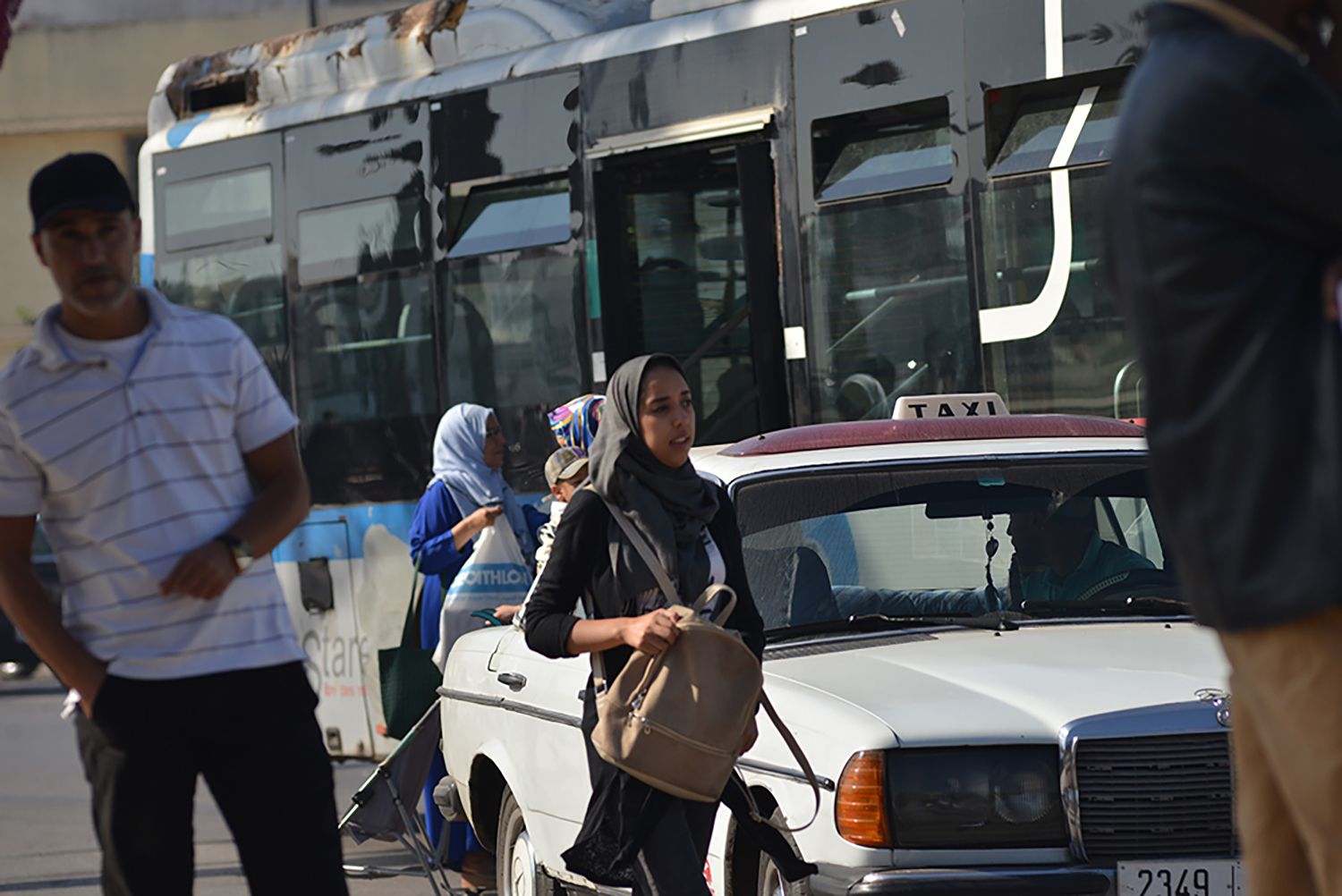A few weeks after I arrived in Morocco in early August, hundreds of women staged a mass sit-in in Casablanca to protest the sexual assault of a young woman on a public bus. A video showed the woman crying out for help as a group of boys tore off her clothes and assaulted her. No one in the video, including the driver, tried to intervene.
I was living in the capital of Rabat at the time of the protest and learned about it and the video of the assault from social media. Facebook and Twitter are often the best places to find news in Morocco and also to understand how a segment of civil society is reacting to it.
I knew from my conversations with young Moroccan women that verbal and physical harassment was a big issue for them. It’s not something you’d necessary notice right away as a tourist in Morocco, especially for a foreign woman being verbally harassed in a language she might not understand. But for many Moroccan women, it’s a daily occurrence and often physical. Two-thirds of Moroccan women report being harassed in public at some point in their lives.
I was living in Morocco for three months to report about the country and to produce a documentary on autism. Initially when I first came to Morocco, I intended to focus my reporting on how progressive the North African country is and how it has positioned itself as a moderate Islamic hub in a region battling political and religious extremism. But the more time I’ve spent in Morocco, the less progressive it has seemed, especially when it comes to women’s rights. This is the benefit of being given the time to live in a place, which my Pulitzer Grant has enabled me to do.
In September, as Donald Trump was making his first address to the United Nations, threatening to “totally destroy” North Korea, Morocco quietly rejected 44 of 244 recommendations made by the U.N. Human Rights Council following its latest review of the country’s rights record. All 44 pertained to either women’s rights or individual rights, including laws that prevent women and men from inheriting equally and that deny rights to children born out of wedlock. I saw the news on a website based outside of Morocco and aimed really at the English-speaking Moroccan diaspora. The news was not covered in Morocco.
In the course of reporting the U.N. story, several activists told me about Morocco’s attempt to pass an anti-harassment law, which also gave me a way to write about the protest in Casablanca. I then spent a month talking to some of the leading feminist scholars and activists in Morocco to understand why. It seemed a relatively simple fix to a major problem. It would have been easy to write the story from the context that Islam oppresses women. After all, Morocco is an Islamic country. But the story was far more nuanced than that. As one scholar after another pointed out to me, it was an interpretation of Islam and not the religion itself. I also talked to journalists and others about the politics behind the country’s failure to pass the law.
Each conversation made me slightly more knowledgeable for the next, which enabled my reporting to be deeper. I started to understand that the story also was about Morocco’s two faces: the progressive image it wants to present to the world and then the reality of its conservative society.
When I was getting close to starting to write, my editor at The Washington Post asked me what my narrative would be. I did not know that yet because I was having a hard time finding women willing to speak on the record about harassment.
Several months earlier, someone had connected me with a sound engineer when I was initially looking to build my documentary team. I had exchanged emails with Malak Nahass but hadn’t ended up needing her for the production. I asked her to meet for coffee to find out what it was like to be a sound engineer in Morocco. She was a woman in a predominantly male field, and I thought her experience might be able to help me frame the story. When we met for coffee one afternoon, she told me about halfway through our conversation about being physically attacked and then her attempt to get the police to take the incident seriously. I knew that she would lead my story. We went back and forth a couple more times so I made sure that she understood that her story would be in the newspaper—and more importantly, online. I think it’s so important, particularly when foreign correspondents are reporting on subjects like this, to make sure people understand the implications for talking to us. We are consumers of their life stories, their experiences, their pain and joy. And with that comes a responsibility. I will eventually leave, and the women who bravely shared their stories will be left with the consequences.
The Washington Post published the story last week.
